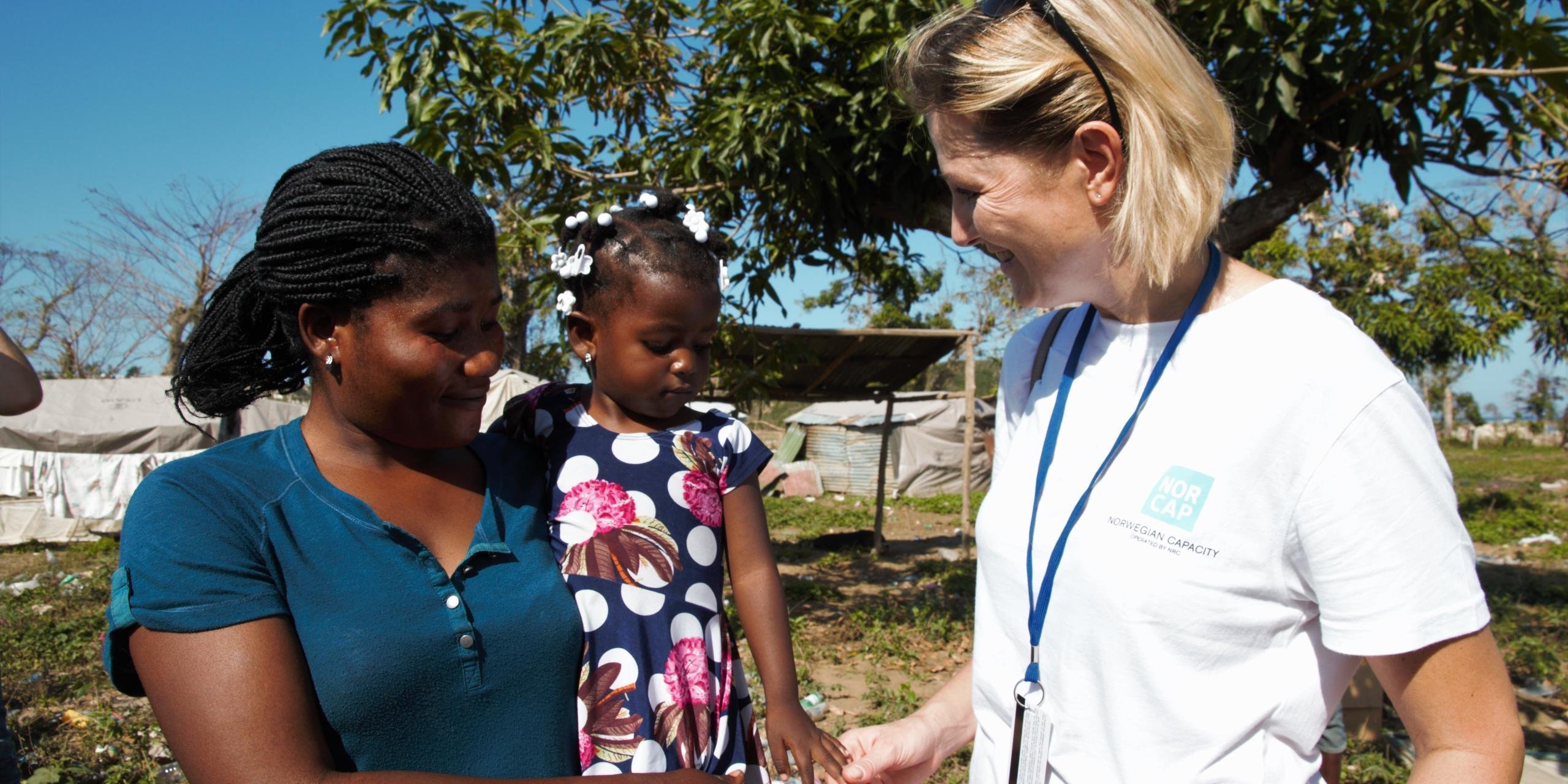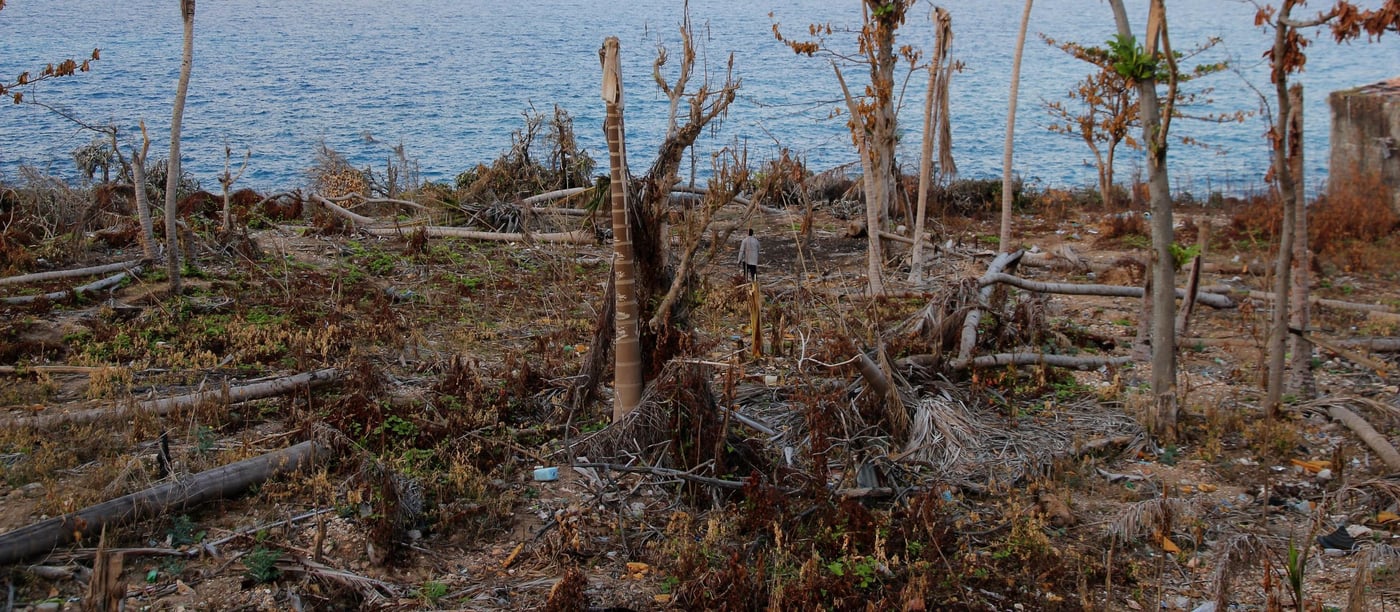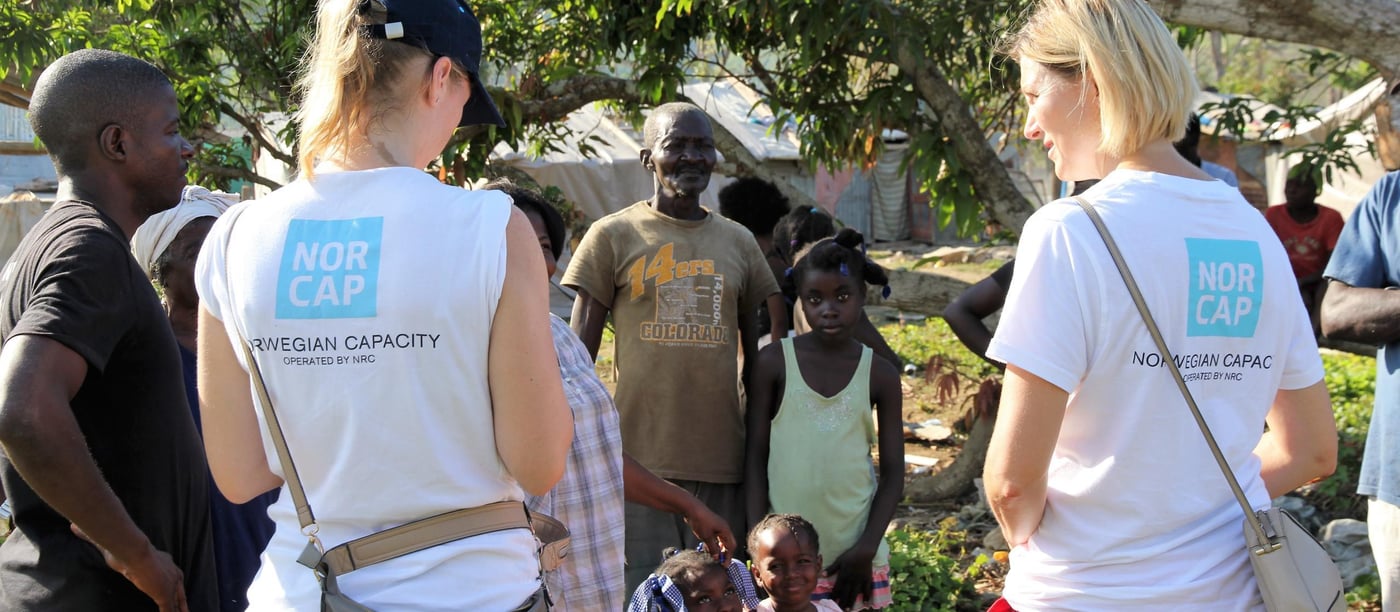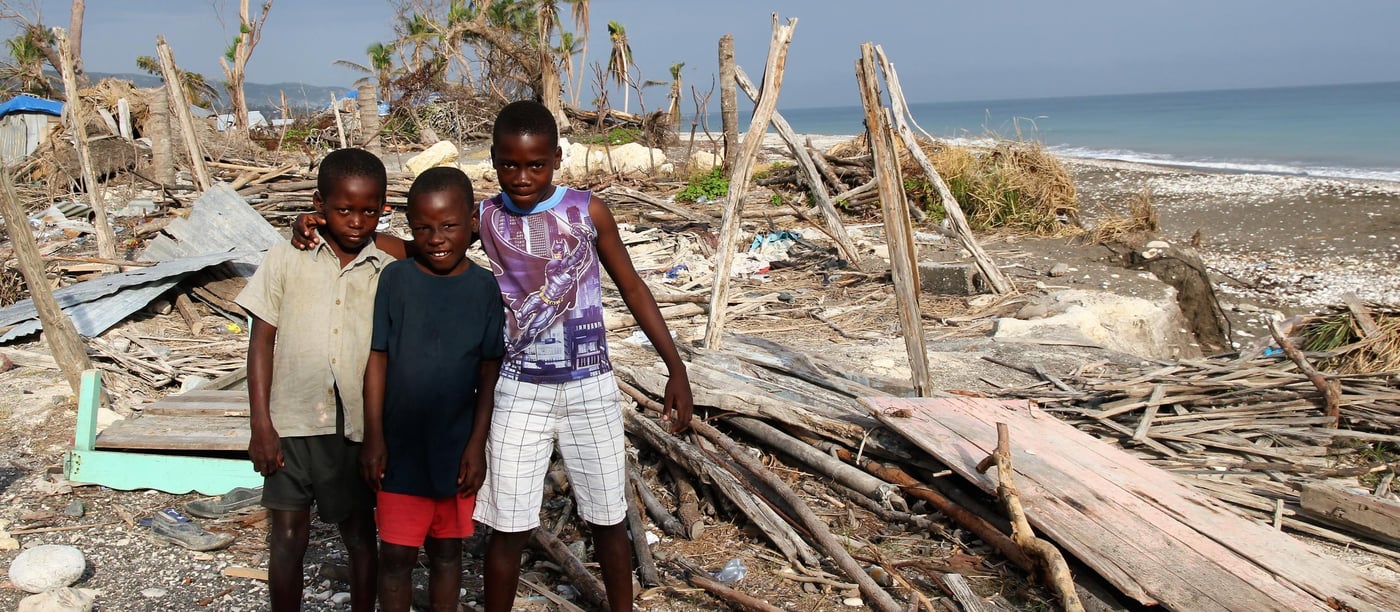
Ruud was the first protection officer to work for WFP in the emergency response to hurricane Matthew in October last year. Her job was to look at protection issues in relation to food distributions to people affected by the hurricane.
Hurricane Matthew hit the south western part of the country, known as "Haiti's food basket", and destroyed up to 90 percent of food production in the area. Emergency food distributions in Haiti were chaotic in the beginning and reports were coming in of local people looting trucks before they even reached the distribution points.
Ruud believes a lot of the tension could have been avoided with better communication with affected communities from the beginning.
Basic measures
The NORCAP expert has worked closely with local authorities and made them take responsibility for the security and protection issues that do arise in a distribution setting. She has helped cooperating partners identify suitable sites for distributions, make sure there are clearly marked entrances and exits and that there are people and vehicles available to help people bring the food back to their homes.
"These are all very basic protection measurements, but when they are not in place, the whole operation suffers", she says.
Ruud's manager in WPF, Cedric Charpentier admits that protection is a new area for WFP.
"This is the first time WFP Haiti has taken protection so seriously in an emergency response. It is an innovative field for us and it is great to have Helene's expertise to guide us along the way", he says.
Compared to the last big emergency in Haiti, the earthquake in 2010, Charpentier says Ruud's decision to involve local authorities has been a huge step up in this disaster.
"We have worked closely with the Ministry of Social Affairs, local police and partners, trained them on protection and helped pass messages to local communities. This prevented looting, gave more credibility to WFP and partners, as well as to the authorities", he explains.
Global guidelines in local context
Another important part of Ruud’s mission was to help colleagues understand what protection means in their daily work and how to apply global principles and guidelines to the work they do in the field.
She says this has also given local partners stronger arguments that they can use towards local authorities in situations where there may be disputes as to who are more deserving of the food distributions.
“I help people decipher what the principles mean in practice. For example, that people have a right to food, no matter what their political views are if their need for food has been established. And that those who have a need, are secured access to food”
Still challenges ahead
In total, two thirds of farmers throughout Haiti lost at least 75 percent of their stocks after hurricane Matthew. Financially, the agricultural losses amount to around 575 million USD for the affected population.
Although the number of people who are still food insecure in the hardest hit regions have gone down from one million shortly after the hurricane, to about 350,000 people, it is expected that the current harvest season will be poor because a great number of seeds and livestock were lost after the hurricane.




